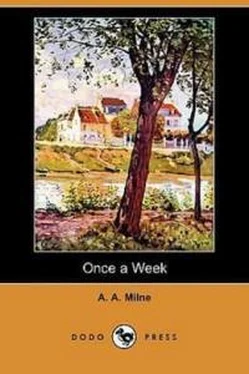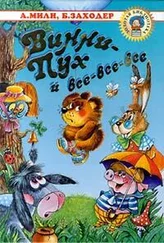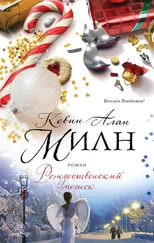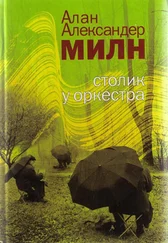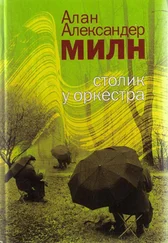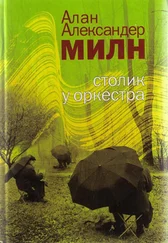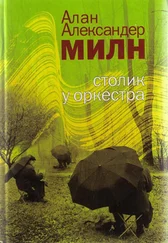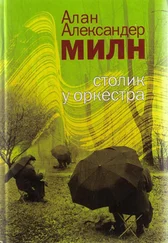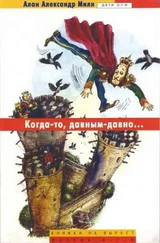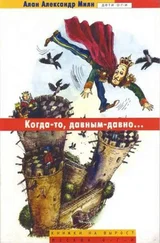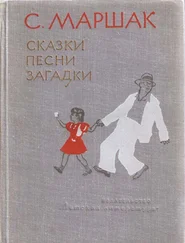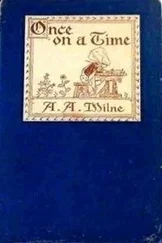Miss Cardew remained in hysterics.
Ten minutes later a brilliant sunset was observed approaching from the north. A little later it was seen to be a large dish of apricots and cream.
"He draws near," said Archie. "Now then, let's be stern with him."
At twenty yards' range Simpson began to talk. His trot had heated him slightly.
"I say," he said excitedly. "You―"
Myra shook her head at him.
"Not done, Samuel," she said reproachfully.
"Not what, Myra? What not―"
"You oughtn't to leave us like that without telling us."
"After all," said Archie, "we are all one party, and we are supposed to keep together. If you prefer to go about by yourself, that's all right; but if we go to the trouble of arranging something for the whole party―"
"You might have caused a very nasty accident," I pointed out. "If you were in a hurry, you had only to say a word to Gaspard and he would have stopped for you to alight. Now I begin to understand why you kept cutting the rope at the start."
"You have sent Miss Cardew into hysterics by your conduct," said Dahlia.
Miss Cardew gave another peal. Simpson looked at her in dismay.
"I say, Miss Cardew, I'm most awfully sorry. I really didn't― I say, Dahlia," he went on confidentially, "oughtn't we to do something about this? Rub her feet with snow or—I mean, I know there's something you do when people have hysterics. It's rather serious if they go on. Don't you burn feathers under their nose?" He began to feel in his pockets. "I wonder if Gaspard's got a feather?"
With a great effort Miss Cardew pulled herself together. "It's all right, thank you," she said in a stifled voice.
"Then let's get on," said Archie.
We resumed our seats once more. Archie took Dahlia's feet on his lap. Myra took mine. Miss Cardew took Thomas's. Simpson clung tight to his luge with both hands.
"Right!" cried Archie.
Gaspard swore at his horses. They pulled bravely. The rope snapped—and they trotted gaily up the hill with Gaspard.
We hurried after them with the luges….
"For our last night they might at least have had a dance," said Myra, "even if there was no public presentation."
"As we had hoped," I admitted.
"What is a gymkhana, anyway?" asked Thomas.
"A few little competitions," said Archie. "One must cater for the chaperons sometimes. You are all entered for the Hat–making and the Feather–blowing—Dahlia thought it would amuse you."
"At Cambridge," I said reminiscently, "I once blew the feather 119 feet 7 inches. Unfortunately I stepped outside the circle. My official record is 2 feet."
"Did you ever trim a hat at Cambridge?" asked Myra. "Because you've got to do one for me to–night."
I had not expected this. My view of the competition had been that I should have to provide the face and that she would have to invent some suitable frame for it.
"I'm full of ideas," I lied.
Nine o'clock found a small row of us prepared to blow the feather. The presidential instructions were that we had to race our feather across a chalk–line at the end of the room, anybody touching his feather to be disqualified.
"In the air or on the floor?" asked Simpson earnestly.
"Just as you like," said the President kindly, and came round with the bag.
I selected Percy with care—a dear little feather about half an inch long and of a delicate whity–brown colour. I should have known him again anywhere.
"Go!" said the President. I was rather excited, with the result that my first blow was much too powerful for Percy. He shot up to the ceiling and, in spite of all I could do, seemed inclined to stay there. Anxiously I waited below with my mouth open; he came slowly down at last; and in my eagerness I played my second just a shade too soon. It missed him. My third (when I was ready for it) went harmlessly over his head. A frantic fourth and fifth helped him downwards … and in another moment my beautiful Percy was on the floor. I dropped on my knees and played my sixth vigorously. He swirled to the left; I was after him like a shot … and crashed into Thomas. We rolled over in a heap.
"Sorry!" we apologized as we got back on to our hands and knees.
Thomas went on blowing.
"Where's my feather?" I said.
Thomas was now two yards ahead, blowing like anything. A terrible suspicion darted through my mind.
"Thomas," I said, "you've got my feather."
He made no answer. I scrambled after him.
"That's Percy," I said. "I should know him anywhere. You're blowing Percy. It's very bad form to blow another man's feather. If it got about, you would be cut by the county. Give me back my feather, Thomas."
"How do you know it's your feather?" he said truculently. "Feathers are just alike."
"How do I know?" I asked in amazement. "A feather that I've brought up from the egg? Of course I know Percy." I leant down to him. " P—percy ," I whispered. He darted forward a good six inches. "You see," I said, "he knows his name."
"As a matter of fact," said Thomas, "his name's P—paul . Look, I'll show you."
"You needn't bother, Thomas," I said hastily. "This is mere trifling. I know that's my feather. I remember his profile distinctly."
"Then where's mine?"
"How do I know? You may have swallowed it. Go away and leave Percy and me to ourselves. You're only spoiling the knees of your trousers by staying here."
"Paul and I―" began Thomas.
He was interrupted by a burst of applause. Dahlia had cajoled her feather over the line first. Thomas rose and brushed himself. "You can 'ave him," he said.
"There!" I said, as I picked Percy up and placed him reverently in my waistcoat pocket. "That shows that he was mine. If he had been your own little Paul you would have loved him even in defeat. Oh, musical chairs now? Right–o." And at the President's touch I retired from the arena.
We had not entered for musical chairs. Personally I should have liked to, but it was felt that, if none of us did, then it would be more easy to stop Simpson doing so. For at musical chairs Simpson is—I am afraid there is only one word for it; it is a word that I hesitate to use, but the truth must prevail—Simpson is rough . He lets himself go . He plays all he knows . Whenever I take Simpson out anywhere I always whisper to my hostess, " Not musical chairs."
The last event of the evening was the hat–making competition. Each man of us was provided with five large sheets of coloured crinkly paper, a packet of pins, a pair of scissors, and a lady opposite to him.
"Have you any plans at all?" asked Myra.
"Heaps. Tell me, what sort of hat would you like? Something for the Park?" I doubled up a piece of blue paper and looked at it. "You know, if this is a success, Myra, I shall often make your hats for you."
Five minutes later I had what I believe is called a "foundation." Anyhow, it was something for Myra to put her head into.
"Our very latest Bond Street model," said Myra. "Only fifteen guineas—or three–and–ninepence if you buy it at our other establishment in Battersea."
"Now then, I can get going," I said, and I began to cut out a white feather. "Yes, your ladyship, this is from the genuine bird on our own ostrich farm in the Fulham Road. Plucked while the ingenuous biped had its head in the sand. I shall put that round the brim," and I pinned it round.
"What about a few roses?" said Myra, fingering the red paper.
"The roses are going there on the right." I pinned them on. "And a humming–bird and some violets next to them…. I say, I've got a lot of paper over. What about a nice piece of cabbage … there … and a bunch of asparagus … and some tomatoes and a seagull's wing on the left. The back still looks rather bare—let's have some poppies."
Читать дальше
